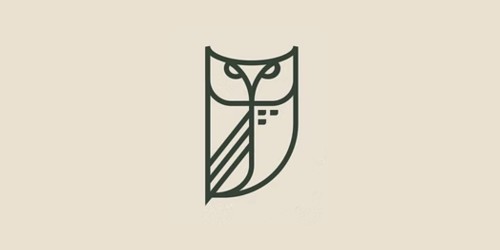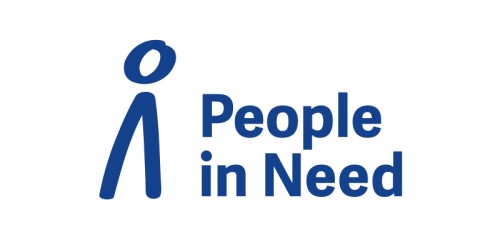
“Circular Economy for Green Transition in Kosovo” project
FINAL EVALUATION
Terms of Reference
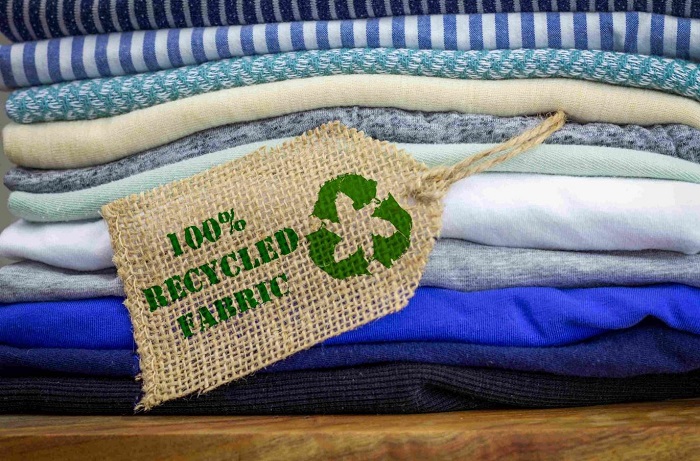
April 2025
| Country office | Kosovo |
| Project name | Circular Economy for Green Transition in Kosovo |
| Implementing lead organization | People in Need Kosovo |
| Partner organizations | Rilindja Gjelbër (formal Let’s Do it Peja) |
| Location | Pristina, Peja, Gjakova |
| Donor | European Union |
| Project length | 01 February 2023-30 July 2025 |
| Project budget | 220,000.00 EUR |
| Duration of final evaluation | Approximately 18 days |
| Estimated start date (field phase) | Mid-May or beginning of June |
| Targeted municipalities | Prishtina, Peja, Gjakova |
- Project overview
The “Circular Economy for Green Transition Kosovo” project, led by People in Need (PIN) in partnership with Rilindja Gjelber (RGj), was designed to address issues and challenges in the Circular Economy field in Kosovo. The project has worked to strengthen CSOs’ ability to advocate for circular economy practices, raise awareness among citizens, and establish partnerships with the private sector to drive policy reforms that support sustainability. Through a human rights-based and gender-inclusive approach, the project has sought to empower women and girls, support Small and Medium-sized Enterprises (SMEs), and promote sustainable production and consumption models as tools for climate change mitigation and social entrepreneurship.
As the project reaches its final phase, this evaluation aims to assess its overall impact, effectiveness, and sustainability. It will examine the extent to which project objectives have been met, the success of advocacy and capacity-building efforts, and the level of engagement among civil society, businesses, and policymakers. Also, the evaluation will assess the project's impact on the community and whether sufficient measures have been taken to ensure its long-term sustainability. Additionally, it will assess how effectively the recommendations from the internal mid-term evaluation have been addressed, highlighting key achievements, persistent challenges, and any remaining gaps that require further attention beyond the project's duration. The evaluation will identify lessons learned and best practices to inform future initiatives supporting Kosovo’s transition to a circular economy.
By analyzing project outcomes, stakeholder feedback, and key performance indicators, the final evaluation will provide critical insights to measure the project’s contribution to fostering long-term systemic change in the circular economy landscape. These learnings will also serve as a basis for similar projects implemented by PIN in the region and beyond.
- Implementing partners
People in Need (PIN): PIN currently operates in 22 countries worldwide providing humanitarian assistance, development support and human rights protection. It first started working in Kosovo during the armed conflict in 1999 and provided humanitarian aid to refugees and people affected by the war. After focusing on reconstructing schools and health facilities in Kosovo post-armed clashes, PIN suspended activities in 2002, returning eight years later in 2010. Since then, PIN has implemented different projects that aimed empowering children and youth, people with disabilities, women and minorities.
Rilindja Gjelbër (formerly Let’s Do It Peja): RGj is one of Kosovo's proactive environmental organizations. Originally founded as a grassroots civic initiative led by a dedicated group of environmental activists, it quickly grew into an independent entity. The organization recently changed its legal name to better reflect its expanded mission and long-term commitment to environmental sustainability. Through a series of impactful initiatives and projects, RGJ continues to advocate, educate, and collaborate to promote environmental protection, mitigate the effects of global warming, address climate change, and contribute to the global sustainable development agenda.
Project summary
"The Circular Economy for Green Transition in Kosovo" is a two-and-a-half-year project, funded by the European Union and led by PIN in collaboration with the local NGO RGJ. The project aims to advance the transition towards a circular economy in Kosovo, with a particular focus on empowering CSOs and SMEs.
The project has identified one major outcome and three primary outputs to guide its implementation:
- Outcome 1: Kosovo CSOs are empowered and mobilized to advocate for gender responsive transition towards circular economy in Kosovo
- Output 1: CSOs have increased organizational and advocacy capacities in the field of circular economy
- Output 2: CSOs and private sector representatives have created a gender-inclusive informal network to enhance their influence on policy reform in the field of circular economy
- Output 3: Increased citizen awareness about circular economy and social entrepreneurship as an effective instrument for green transition.
The project aims to enhance knowledge of circular economy principles and social entrepreneurship while integrating circular economy considerations into policymaking and planning processes within three targeted municipalities: Prishtina, Peja, and Gjakova.
In June 2023, an external expert conducted a baseline assessment of 16 CSOs and 6 SMEs, identifying their capacity-building needs in the circular economy sector. The final report, completed by September 2023, underscored the vital role of CSOs in advancing Circular Economy (CE) principles in Kosovo. It identified that CSOs require training in proposal writing, communication, M&E, strategic planning, and gender inclusion, while SMEs need support in waste management, HR, financial management, and fundraising, with a strong interest in EU expertise. The assessment also highlighted challenges in implementing large-scale CE projects, alongside limited government engagement in policy reforms, emphasizing the need for increased collaboration among stakeholders. In response, PIN, in coordination with GR, launched a project in October 2023 to foster dialogue and promote inclusive CE practices. Since then, three capacity-building workshops have been successfully conducted in Peja, Pristina, and Gjakova, strengthening the advocacy and innovation capacities of CSOs and SMEs. The detailed list of project activities is provided below:
| Activity | Status |
A.1.1 Capacity assessment of CSOs and social enterprises | Completed in 2023 |
A.1.2 Training workshops to increase CSO capacities to advocate for circular economy and responsible waste management | Completed in 2023 |
A.1.3 Capacity building activities and mentoring on strategic planning, public speaking, and engaging with policymakers supporting the development of advocacy plans | Completed (April-July 2024) |
A.2.1 Establishment and operationalization of a gender-inclusive informal network of CSOs, social enterprises, and private sector representatives interested in the circular economy | First meeting 14.12.2023 Second meeting 07.10.2024 Third meeting 16.12.2024 Fourth meeting (Tentative date 30 April) Fifth meeting (Tentative date 21 May) |
A.2.2 Event showcasing best practices in circular economy from the Western Balkans region
| Concept Note approved (20 Dec 2024) Study Visit (03-08 March 2025) Conference (tentative date first week of June 2025) |
A.2.3 Delivering gender-sensitive policy briefs to policymakers at the national and local level through publications, roundtables, social media, and providing evidence-based advocacy
| Three-day workshop (18-19-20 October 2024)
Follow-up workshop on policy Brief 01 (11.12.2024 and 24.01.2025)
Policy Brief_01 finalized (31.01.2025)
Workshop on Advocacy Plan (24.01.2025)
Meeting on Draft Policy Brief_02 (14.03.2025)
Advocacy Plan finalized (31.03.2025)
Workshop on finalizing the Policy Brief 02 (Tentative date 24 April 2025)
RTM for presenting the Advocacy Plan 01 (17 April 2025) RTM for presenting the Advocacy Plan 02 (Tentative date 28 May 2025) |
A.3.1 Gender-balanced training workshops on innovative and creative social entrepreneurship models in the field of circular economy | Completed in (21-22-23 June 2024) |
A.3.2 Expanding the existing model (SEREC – Social Enterprise Recycling) of textile waste recycling to 3 municipalities
| Community meetings were organized on 20 September 2024 in Peja and 18 December 2024 in Prishtina Next: April and June and July |
A.3.3 Gender-sensitive social media campaign about social enterprises in the field of circular economy, including promotion of SEREC | Ongoing through all project |
A.3.3 Gender-sensitive social media campaign about social enterprises in the field of circular economy, including promotion of SEREC | 12 April 2025 |
To accurately measure the project's impact, the final evaluation will assess its effectiveness in enhancing the capacities of CSOs and SMEs, establishing sustainable collaborative networks, and raising long-term citizen awareness. It will also examine the lasting effects of these efforts and the project's overall contribution to systemic change in the circular economy landscape.
- Objective and scope of evaluation
The Final Evaluation, which will be carried out by an external evaluator/or evaluation company selected through an open call and procurement procedures by PIN, aims to assess progress towards project objectives achieved throughout the entire project implementation, identify any areas for refinement or enhancement, including potential gaps or overlooked aspects, and provide realistic and actionable recommendations for future programming and policy initiatives. The evaluation will focus on lessons learned (best practices and challenges) to ensure the long-term impact and sustainability of the project.
This evaluation will cover the project's entire implementation phase, from February 1, 2023, to July 31, 2025, focusing on the Development Assistance Criteria (DAC) of Relevance, Effectiveness, Efficiency, Impact, Coherence, and Sustainability. This approach will provide a results-driven analysis, contributing to evidence-based decision-making and future programming improvements.
The geographical scope of the evaluation will encompass all targeted municipalities, and stakeholders such as the donor, city authorities, our partner organization GR, Civil Society Organizations (CSOs), Small and Medium Enterprises (SMEs), public institutions, citizens, members of the Informal Network of Gender-Inclusive Circular Economy, trainers, facilitators, and students. The project team will compile a list of beneficiaries and stakeholders, including their contacts, before the evaluation begins for the selected evaluator or company. The evaluator will then use this list to select stakeholders for interviews, ensuring a comprehensive assessment of the project’s performance and stakeholder perspectives.
Specifically, the Final Evaluation will focus its scope around the following workstreams:
- The added value of the capacity-building scheme, including improved advocacy capacity, increased visibility, and enhanced collaboration, and its impact on project outcomes.
- The empowering and mobilization of civil society organizations in promoting and advocating for a gender-sensitive transition to a circular economy across targeted cities in Kosovo, targeting Pristina, Peja, Gjakova, and other areas.
- The effectiveness of gender-responsive approaches within the capacity-building scheme, particularly in addressing the specific needs of female beneficiaries (CSOs, SMEs) in promoting their involvement in circular economy initiatives. Additionally, the evaluation will analyze the extent to which different age groups have been engaged in advocacy initiatives through CSOs and SMEs.
- The major challenges encountered during project implementation and an evaluation of the efficiency of coping mechanisms employed. Additionally, an analysis of any obstacles hindering project results will be conducted.
- Assessing whether the recommendations from the internal mid-term evaluation were considered and implemented or if key gaps persist, while also reflecting on the reasons behind their adoption or non-adoption and the factors that influenced these decisions.
- Assessing how effectively the project has brought together CSOs and SMEs and identifying any tangible results achieved through this collaboration.
- Reflecting on lessons learned and identifying strategies for enhancing cooperation with CSOs and SMEs beyond the project’s duration to ensure sustainability and continued engagement in circular economy initiatives.
- Assessing the advocacy efforts of the project delivered through the engagement of relevant stakeholders, SMEs and CSOs.
- Assessing the collaboration and effectiveness of the project partners involves evaluating the quality of their cooperation, communication, and contribution toward achieving the project’s objectives.Evaluating the cooperation with the donor and targeted municipalities focuses on assessing the effectiveness, responsiveness, and alignment of their support and engagement with the project’s goals and activities.
- Methodology
The evaluation is expected to be conducted primarily through qualitative research methods, combining desk research with direct field activities. The approach should ensure in-depth insights through tools such as interviews, focus group discussions, and document reviews, aimed at capturing the experiences, perspectives, and outcomes relevant to the project.
Desk research: review of the project documentation, including the project proposal, logical framework, ITT, \ reports to the donor, MEAL documentation, communication strategy/ materials, mid-term evaluation report, evaluation briefs and any other related documents.
Direct field activities: expected data collection methods include interviews with the project team and project partners (PIN, RGj) and with experts or/and trainers involved in the activities - Individual or group Interviews, surveys, focus group discussions with target groups (CSOs, SMEs, municipal representatives, representatives of institutions/ministries, the donor, targeted communities in all three municipalities, art school students and representatives, and other stakeholders). To ensure feasibility and adherence to the timeline, the evaluator/company should select a representative sample from these groups.
The evaluator will be responsible for developing and agreeing with PIN the evaluation design and methodology in order to meet the above stated objectives. The methodology should be informed by the Development Assistance Criteria (DAC) of Relevance, Coherence, Effectiveness, Efficiency, Impact and Sustainability. The evaluation will incorporate elements based on the Results-Oriented Monitoring (ROM) methodology. In addition to analyzing the six criteria identified by the OECD-DAC, qualitative insights (e.g., perceptions of beneficiaries, success stories), data quality assurance, accountability mechanisms, learning and adaptation will be given attention. Furthermore, cross-cutting elements, along with communication and visibility, will be integrated within these six criteria and assessed both as part of and separately from them. Below are the main evaluation questions PIN and our partner want to be covered in the evaluation report. The list is non-exhaustive, and the evaluator may suggest changes and additions (when preparing the Inception Report and during the field phase based on initial findings):
N | DAC Category | Proposed questions |
Relevance |
| |
Coherence |
| |
Effectiveness |
| |
Efficiency |
| |
Impact |
| |
Sustainability |
|
- Evaluation timeframe and expected deliverables
Timeframe: The evaluation is expected to take a maximum of 18 working days (non-consecutive days are acceptable) and the desk research and fieldwork be conducted in mid-May or the beginning of June 2025. The evaluator is expected to allocate about 20% of the time for a desk review of project documents and preparation of inception report, 60% to field work data collection and data analysis, and 20% to the final report preparation and presentation of findings and recommendations.
Indicative timeline for expected deliverables:
Deliverable | Completion date | Breakdown of the tasks |
Desk research and preparation for the Inception Report, including methodology, workplan, and data collection tools. | 15-20 May 2025 (3.5 days) | Desk review and initial preparation of the Inception Report, including methodology, work plan, and data collection tools |
Development of data collection tools and integration of desk research findings into the Inception Report. | ||
Submission of the Inception Report to PIN for review and confirmation, including findings from desk research, methodology, and planned data collection tools. | ||
Revisions based on feedback, finalization of the work plan, and approval of the agenda. | ||
Fieldwork preparations | 23-25 May 2025 (1 workday) | Submission of the list of stakeholders and beneficiaries to the evaluator/company (done by PIN). |
Selection and recruitment of interviewees by the evaluator, with additional recommendations provided as guidance by PIN, and submission of the draft fieldwork plan, including selected interviewees, methodology, and logistical details. based on random sampling. | ||
Submission of the final fieldwork plan and agenda, following revisions based on feedback. | ||
Field work/data collection – field visits in Pristina, Peja and Gjakova | 28 May-15 June 2025 (9 workdays) | Conduct field visits for data collection in Pristina, Peja, and Gjakova, based on the detailed work plan and agenda agreed |
Draft report submitted to PIN and partners for review and comments | TBC second half of June 2025 (2.5 days for the evaluator/company) | Submission of draft report to PIN and partner (GR) for review, including key findings and recommendations |
Final report with incorporated feedback and Online presentation of findings and recommendations to stakeholders, including representatives of EU | TBC second half of June 2025 (1 workday) | TBC June: Submission of the final report with incorporated feedback (0.5 day). |
TBC June: Preparation and delivery of the online presentation of findings and recommendations to PIN, GR, and EU representatives (0.5 days). |
The timeframe can be adjusted based on the recruitment process and the approval of the Inception Report.
- Evaluation report
The evaluation report Executive summary should not exceed the limit of 3 pages, and the remaining parts of the report should not exceed 25 pages (excluding annexes). The suggested structure for the report is:
- Executive summary;
- Introduction;
- Methodology;
- Limitations;
- Findings and lessons learned;
- Conclusions;
- Recommendations;
- Annexes.
Audience for the Evaluation Results
The evaluation results will be shared with the donor, project partner, as well as with PIN HQ.
- Management arrangement specification
The evaluator will report to and liaise with the PIN Focal Person, MEAL coordinator, on all matters and decisions related to this assignment. The evaluator/company will be responsible for all the logistics arrangements. The evaluator will be responsible for initially contacting stakeholders to coordinate meetings. If any issues arise during this process PIN will assist in arranging meetings with all the representatives as selected by the evaluator. For the FGD, PIN will be responsible for inviting participants (the evaluator will have the space to choose the participants) and arranging their transportation to a location chosen by either the evaluator or PIN.
- Evaluation budget and payment modalities
The total budget allocated for the final evaluation of the project is EUR 3,280.00, inclusive of all taxes. PIN is seeking to engage a local expert to carry out the evaluation to avoid additional expenses related to air travel or other associated costs.
The payment will be made in two instalments:
- First instalment (40%) upon approval of the proposed methodology, tools, and workplan.
- Final instalment (60%) upon submission and approval of the final evaluation report, along with all required annexes and supporting documentation, by PIN.
Please note that PIN reserves the right to deduct up to 0.5% of the total contract amount for each day of delay in delivering the agreed outputs. This deduction, if applicable, will be applied to the final payment.
- Requirements
Both individual consultants and consulting companies with relevant expertise are eligible to apply. Applicants must demonstrate proven experience in conducting final project evaluations, particularly in the fields of Circular Economy, Environmental issues, and/or cross-cutting themes such as gender, inclusion, or governance. Experience with EU-funded projects will be considered an asset. Fluency in English is required.
- Application procedures
All interested candidates are invited to submit their applications to [email protected], with the subject line: CE4GT Final Project Evaluation – [Your Full Name and/or Company Name].
The application deadline is 2 May 2025.
Applications must include the following documents:
- Curriculum Vitae (CV)
- Letter of Interest, indicating availability, motivation and proven experience in conducting final project evaluations
- Draft proposed methodology for conducting the evaluation (2 pages max)
- Detailed budget breakdown as part of the financial offer
- Previous publication or example of similar evaluation conducted
- Contact details of three professional references, preferably from similar assignments
Only complete applications received by the deadline will be considered. Shortlisted candidates will be contacted for further clarification or interview.

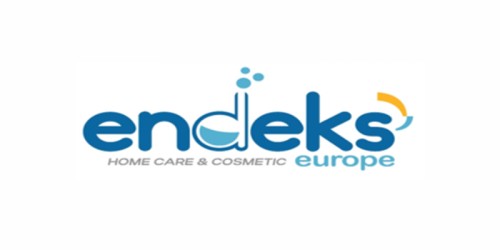
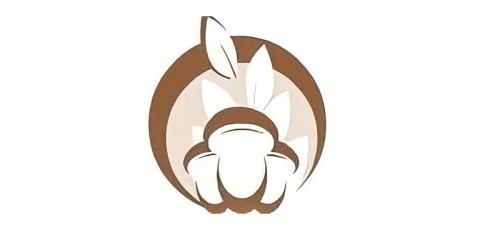
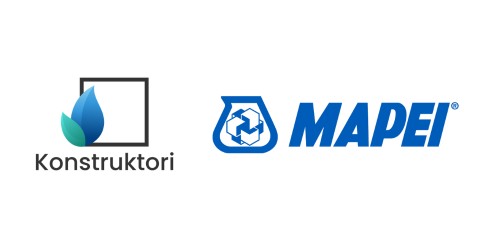
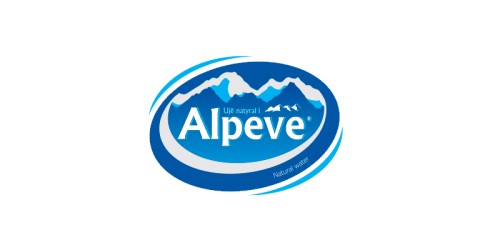
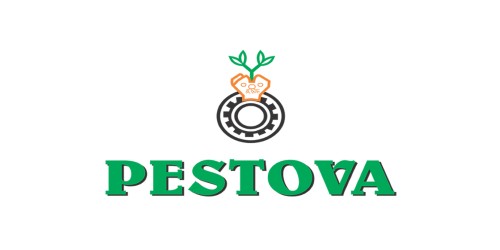
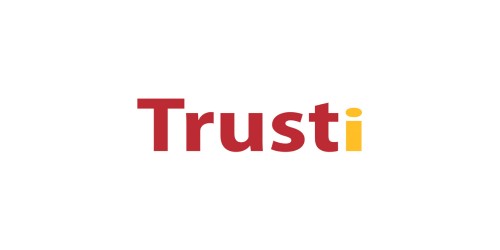
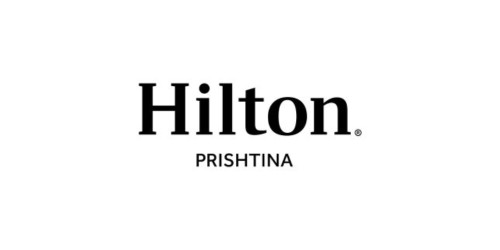
-thumbnail.jpg)
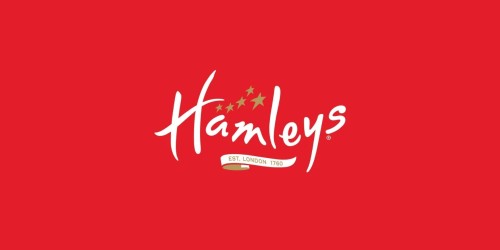

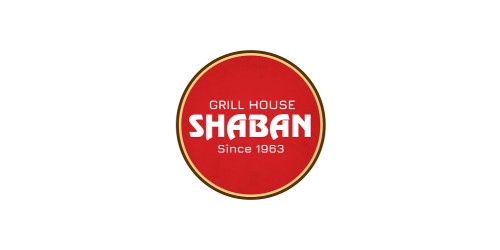
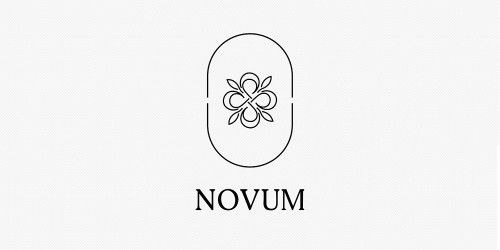
-thumbnail.jpg)
